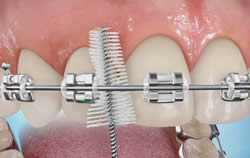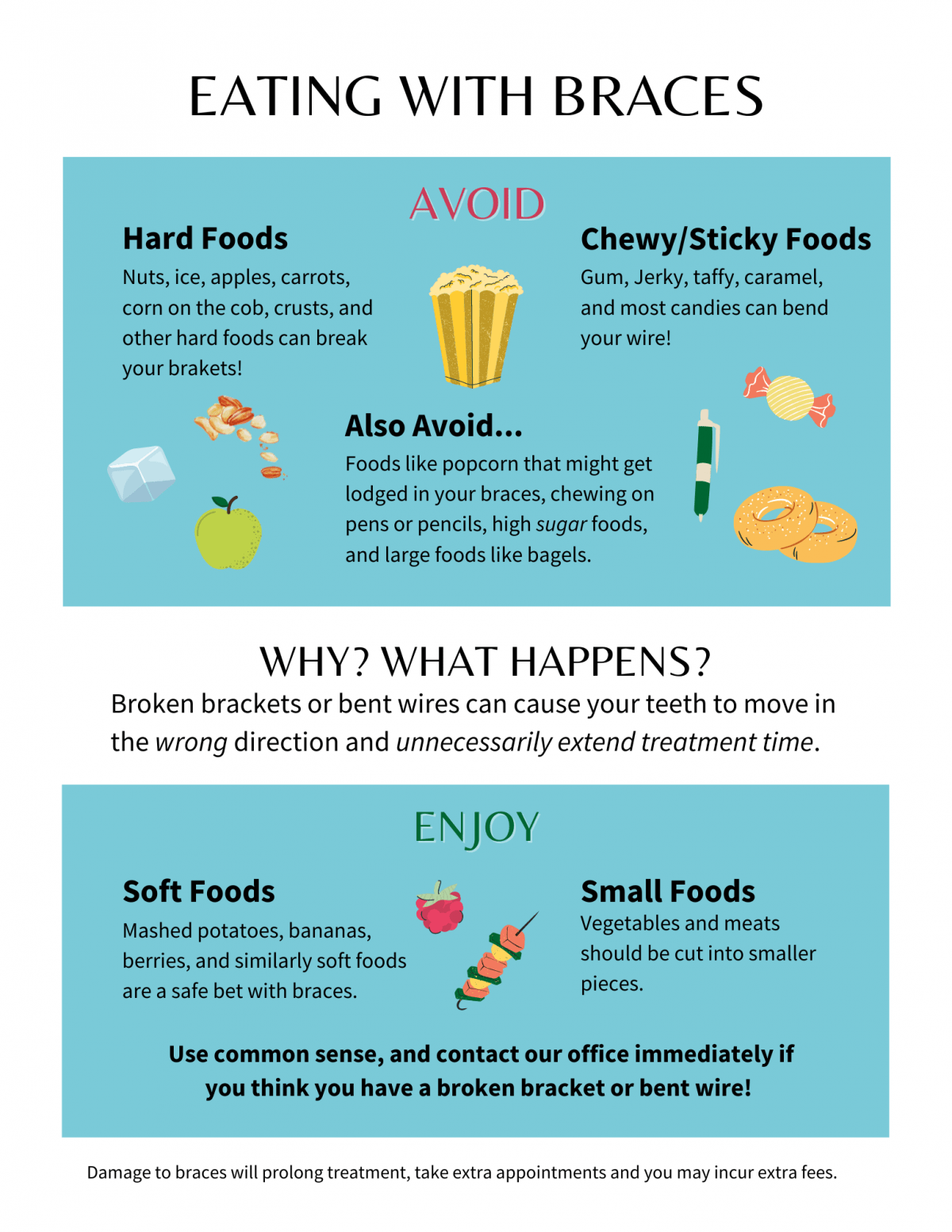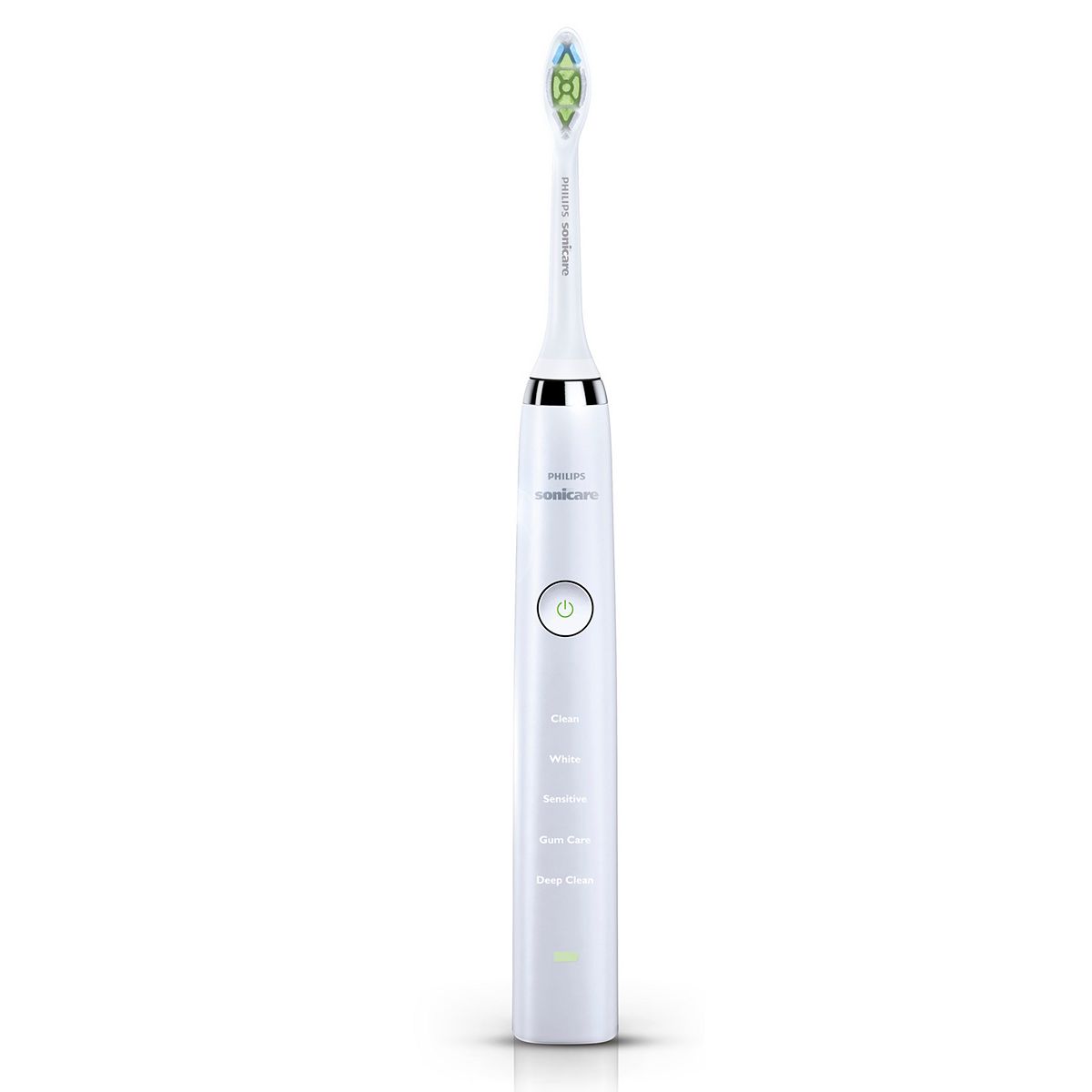
Brushing
It is vital that you properly brush your teeth so that your teeth and gums remain healthy during your treatment. Improper brushing can lead to permanent stains/scarring and bad breath from built-up plaque around brackets or attachments. Plaque comes from food compacting around brackets and between your teeth and can only be removed by proper brushing/flossing.
Proper brushing includes:
- Two minutes of brushing after every meal
- A soft, fresh toothbrush – your toothbrush will wear out faster because of your appliances, so be sure to replace it when the bristles start to fray. A small amount of toothpaste.
- Light pressure and small circles
- Brushing at a 45-degree angle to the tooth, don’t forget to brush both the top and the bottom of each bracket (45 degrees down and then up)!
- A Proxabrush is best for cleaning around your brackets, wires, bands, and any other areas that are difficult to reach with a normal toothbrush.


TOOL RECOMMENDATIONS
Waterpik® ~ A waterpik uses a stream of pressurized water to remove food and debris. While it is not a replacement for brushing, Dr. Woo highly recommends investing in a waterpik for getting food out of hard-to-reach places, especially for patients with braces.
Electric toothbrush ~ Sonicare®, Braun are our favorites, but most brands work!
Proxabrush ~ Casually known as Christmas tree brush, it’s perfect for cleaning hard-to-reach areas around braces that normal toothbrushes cannot access! See video below.
Flossing
Flossing should be a daily habit and is an important part of keeping your teeth healthy. Flossing removes lodged food and plaque which if unattended to it could lead to decay in between the teeth.
Flossing works a little differently with braces! In order to get past the archwire and between the braces, patients should use a reusable floss threader (provided by our office) or SuperFloss®.
Eating With Braces
Following the eating guidelines for braces will benefit your treatment enormously. Brackets and wires can easily get broken or twisted from hard, chewy, and sticky foods which can delay your treatment and cause discomfort. Also it is better to take small bites and chew thoroughly. Large bites can bend wires even if the food is soft.

General Oral Health
Tongue: Brushing doesn’t just apply to teeth! Brush your tongue daily to prevent unwanted food and bacteria from collecting in nooks and crannies. This will help reduce bad breath.
Professional Cleaning: We also recommend that you see your regular dentist for a professional cleaning every 6 months to help keep your teeth and gums healthy. Adult patients who have a history of gum disease should also see a periodontist during orthodontic treatment.
Minimizing Decay: We also provide a special toothpaste with Fluoride that helps to minimize the chance of decalcification (permanent white spots on the teeth caused by plaque) or decay. Decalcification occurs in places where plaque is allowed to sit on teeth for an extended period of time.
If you are not cleaning your teeth properly, you may notice one or more of the following:
- Redness along the gumline
- Swollen and puffy gums
- Bleeding when brushing and flossing
- Plaque (food and bacteria) around your brackets and near your gum line

